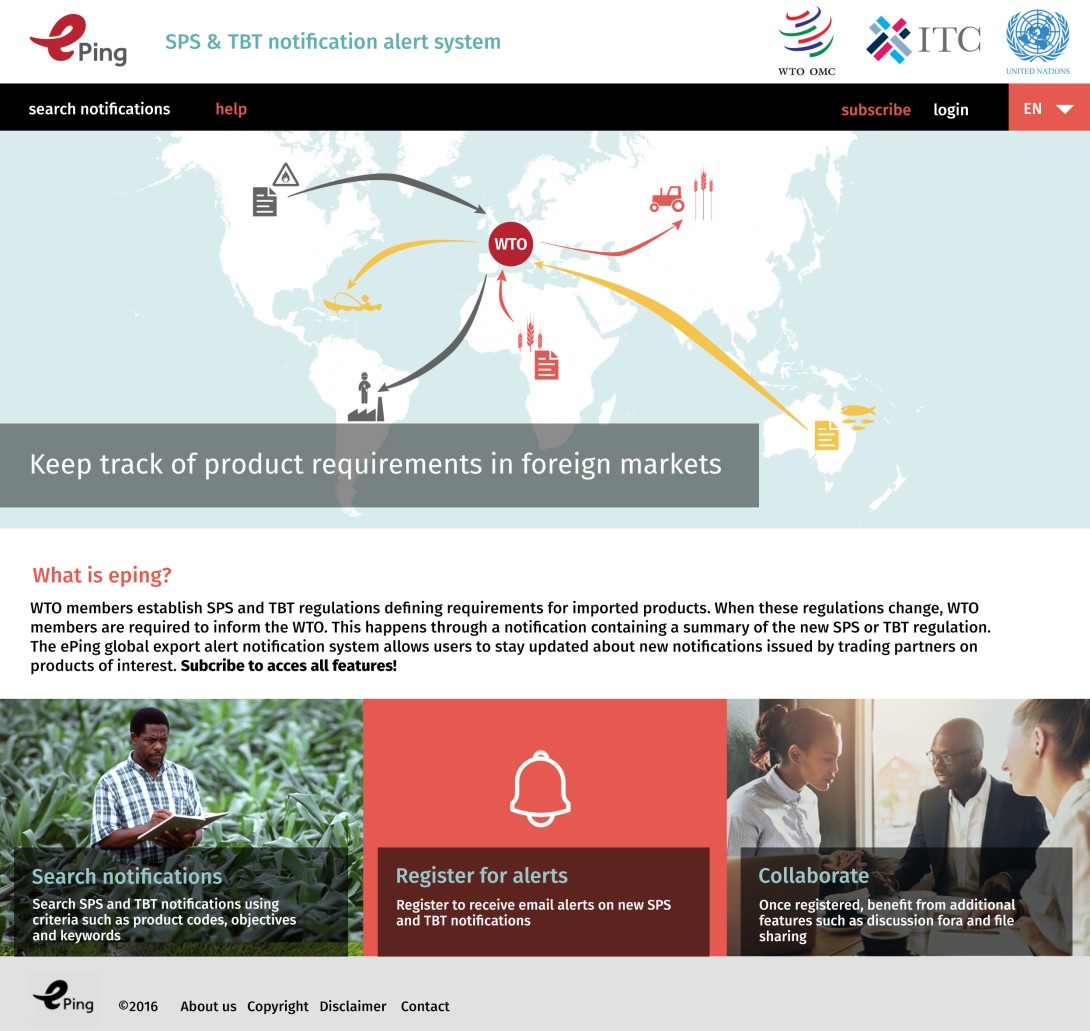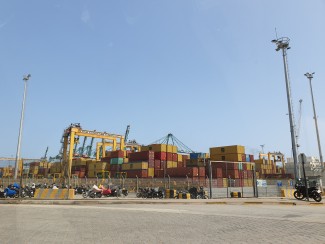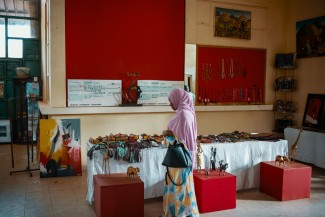ePing platform helping countries keep track of assorted requirements, transforming communication and comment
The world's trading system is a massive, complex force. And keeping abreast of the current and emerging regulations that govern countries’ trade in goods is an undertaking not to be taken lightly.
For Least Developed Countries (LDCs), obtaining needed regulatory information for their exports and conveying their rules on imports can be even more difficult because of lack of infrastructure, human capacity and access to technology, among others.
Under the WTO’s sanitary and phytosanitary (SPS) and technical barriers to trade (TBT) agreements, member governments need to inform the WTO before adopting new product requirements, which can range from pesticide residue limits to labelling rules. Those countries also need to provide their trading partners with an opportunity to comment.
The result: thousands of notifications and timelines for comment to track.
"More than 4,000 SPS and TBT notifications were circulated in 2017 and the numbers are growing. This is on the one hand a good thing as it means that countries, including an increasing number of LDCs, are notifying and are being transparent. But it has become increasingly difficult to keep track of this wealth of information, let alone provide comments in time," said the WTO’s Serra Ayral.
Recognizing that countries' requirements for trade in agriculture or electronics change, and that there were lags in needed notifications getting to the right parties, the WTO in partnership with the International Trade Centre (ITC) and the United Nations Department of Economic and Social Affairs (UNDESA) created a simple, streamlined solution.
ePing is an online platform that immediately alerts those registered, including exporters, businesses, trade ministries and policy makers, when notifications of particular interest to them are circulated. Users can search for regulations and filter their results according to countries and specific products.
The pilot version was initially developed by UNDESA’s Committee for Development Policy (CDP) Secretariat in light of assessments carried out in LDCs, in particular pilot countries Uganda, The Gambia, Lesotho and Nepal. The research showed that stakeholders were not accessing crucial information contained in notifications in a timely manner.
Now, ePing is filling that void.

OBSTACLE COURSE
George Opiyo, Uganda’s TBT focal point for the WTO, has been working with ePing since its inception.
“Before we started using ePing, one of the challenges that was associated with the earlier mechanism of dissemination of notifications to people in our country was that the notifications were not reaching the final intended beneficiaries, who may be directly impacted,” he said.
They found a solution working with UNDESA on ePing, which was then adopted by the WTO as a solution to trade notification hurdles across the full WTO membership.
The WTO’s management of ePing means Uganda no longer has to worry about maintaining the system in the medium- and long-term, Opiyo said.
Without such a system, it would be impossible to track and monitor one’s export markets. As of August 2018, ePing has around 4,500 registered users, about 16% of them from LDCs. And a number of bilateral donors are using the system and promoting it in their capacity-building activities in LDCs.
“ePing is one element among many WTO efforts to ensure there are no unnecessary obstacles to international trade – and this is especially important for LDCs just breaking into new markets,” Ayral said.
FLOWERING
In Uganda, there were in-country trainings for Uganda’s central and district government officials, the private sector and key industries like the National Organic Agricultural Movement and the Uganda Flowers Exporters Association.
With more than 280 registered ePing users in the country, according to Opiyo, one could say that the platform – and as a result communication about trade with the aim of increasing it, and thereby improving citizens’ lives – is now flowering.
ePing users can also talk notifications with interested parties.
Opiyo said, “We are using ePing to discuss and get feedback on notifications. We are also using ePing for sharing any complementary information.”
This could include the full text of draft measures, translations and questions from members about the specifics of a new requirement. With a 60-day comment period, knowing that a draft has been notified immediately means more time for consideration and response.
COMMUNITY ENDEAVOR
Beyond Uganda, countries in the East African Community (EAC) have been introduced to the platform thanks to a partnership with the USAID East Africa Trade and Investment Hub.
“We are trying to see how we can use the discussion forum in ePing to initiate a review of notified measures that may impact the exports of a number of EAC partner states,” Opiyo said.
This would likely be agricultural products like black tea that EAC partner states are exporting to the EU, with countries discussing amongst themselves any black tea-related draft measures that emerge.
In working to level the access-to-information playing field, the ePing endeavour is a key step in supporting LDC integration into global trade.
Since its launch, requests for training and assistance with ePing from LDCs are on the increase, and a training workshop in May 2018 was held to inform even more LDCs about the tool.
“I see a lot of opportunities,” Opiyo said of ePing, adding, “this can benefit the small countries and help increase their participation.”
If you would like to reuse any material published here, please let us know by sending an email to EIF Communications: eifcommunications@wto.org.



